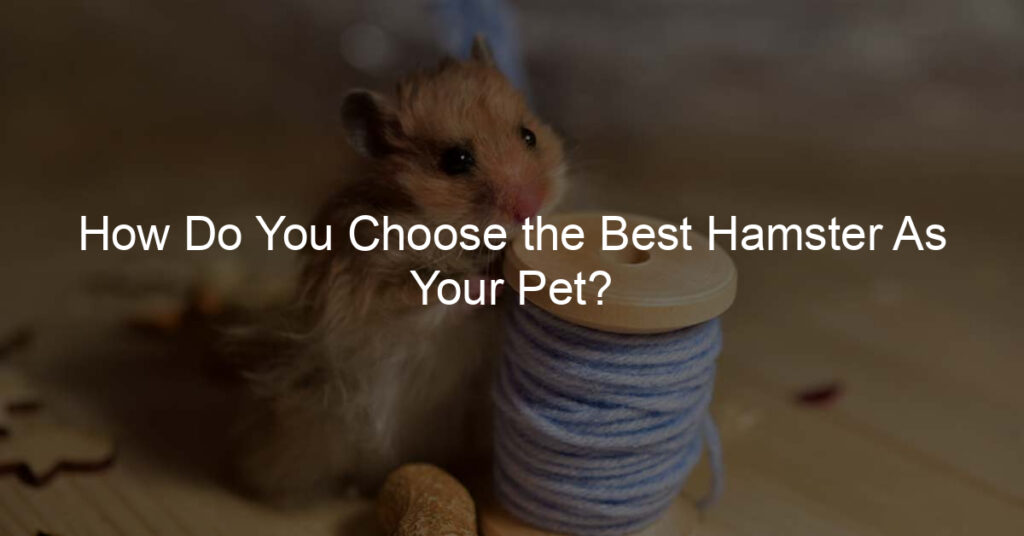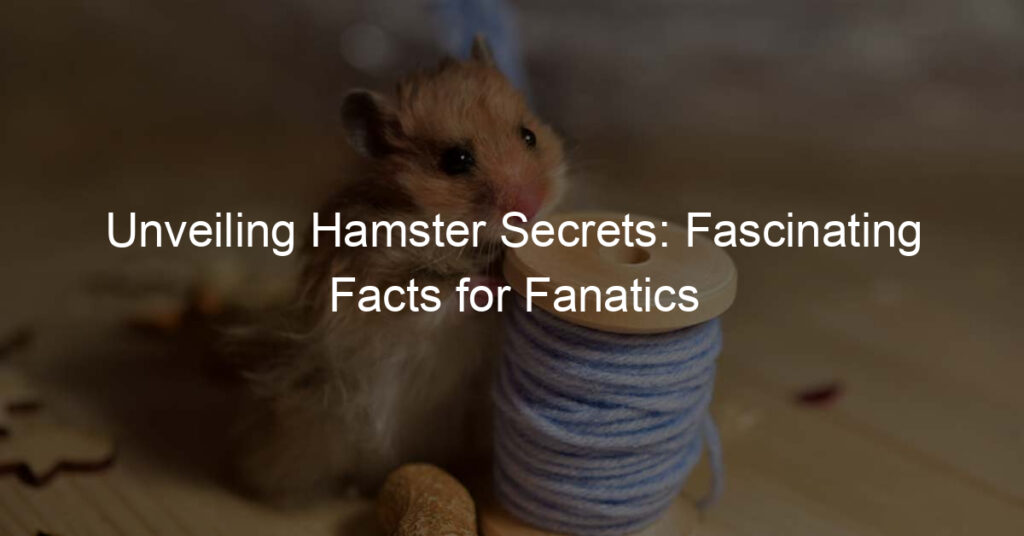If you’re considering adding a furry little hamster to your home, you might be wondering how to choose the best one.
There are a few things to consider when making your decision, and this blog post will help guide you through the process. Read on for everything you need to know about choosing the perfect pet hamster!
First, decide what type of hamster you want. There are five species of hamsters: the Syrian, Dwarf Campbell’s Russian, Dwarf Winter White Russian, Chinese, and Roborovski.
The most common pet hamster is the Syrian hamster because they stay small and have a wide range of colors.
If you’re looking for a smaller pet, the Dwarf Campbell’s Russian and Dwarf Winter White Russian hamsters are just the size you need. Chinese hamsters are small but very active and Roborovski hamsters are the smallest of all five species.
What type of hamster makes the best pet?
With their friendly personalities, easy maintenance, and small size, hamsters make wonderful pets for first-time pet owners and experienced alike.
While all sabretoothed hamsters are cute and cuddly, dwarf hamsters, such as the Syrian hamster, are often recommended as the best starter pet due to their docile disposition.
Dwarf hamsters will reward their owners with loads of affection while they provide hours of entertainment with their playful antics.
Hamsters have a relatively short life span so they are both affordable and easy to care for. For those looking for an engaging friend in a tiny package who offers unconditional love, owning a dwarf hamster may be the ideal choice.
Which hamster is the best for beginners?
As a first-time hamster owner, you may want to consider the Syrian or Golden hamster. These types of hamsters are generally easy to look after and do not require much in terms of special care.
They are also quite gentle creatures, so if you have children around the house, these two options make for great family pets.
Syrians come in a variety of coat colors and patterns, which can bring a bit of uniqueness to your pet’s choice.
Golden hamsters also have beautiful stripes along their coat that is sure to captivate anyone’s attention.
While many other species might be more suitable for experienced owners, beginners would benefit from considering either the Syrian or Golden hamster as their very first furry friend!
How do you pick a hamster that doesn’t bite?
Choosing the right hamster for your family can be a challenge, particularly when it comes to finding one that does not bite. A good way to get started is by learning about the different breeds and their temperaments.
Some breeds, like the Syrian hamster, can be more territorial compared to others and therefore might have a higher tendency to bite.
Before making your purchase, try spending some time handling different types of hamsters at a pet store or breeder to see which ones are least likely to become aggressive when handled.
In addition, always make sure the hamster is healthy by looking for signs such as bright eyes, an alert attitude, and clear breathing; ill health can sometimes cause a hamster to act out and become more prone to biting.
How often should I hold my hamster?
Holding your hamster should be done often and in the proper way. It is not just necessary for socializing and bonding, but it is also important for maintaining your hamsters’ health.
Make sure to handle your furry friend with a gentle hand while supporting their bum with the other. Place them on either of your shoulders or palms to observe the world through their eyes as they explore.
This activity will greatly improve the relationship between you and your hamster, so whenever possible set aside time to give them a snuggle session!
What is the weakest reason for getting a pet hamster?
Owning a pet hamster may seem like a great idea, but not all reasons for getting one are strong. One of the weakest arguments for acquiring a pet hamster is that they don’t take up much space.
This may be true since they can stay in their cages most of the time, but that doesn’t mean they have minimal needs.
Hamsters need attention and love to stay happy, healthy, and entertained so they don’t become reclusive or depressed.
Additionally, they need regular cleaning of their cages which also requires time and energy. As this shows, owning a pet hamster is not as simple as providing it with enough room to live; it takes some effort to be a successful pet parent and make sure your furry friend lives a long and fulfilling life.
It’s a wrap: How Do You Choose the Best Hamster As Your Pet?
When it comes to pets, hamsters can be great companions given the right circumstances. They require very little maintenance and are relatively low cost, but providing a suitable environment for your pet is important to ensure their health and well-being.
Take into account their size requirements, diet needs, temperament, and activity level to determine which type of hamster would make the best pet for you and your family.
Caring for a small animal can be a rewarding experience; providing them with proper care helps foster an even stronger bond between you and your furry friend. Taking into account all of these considerations will help guarantee you find the perfect hamster as your companion.








